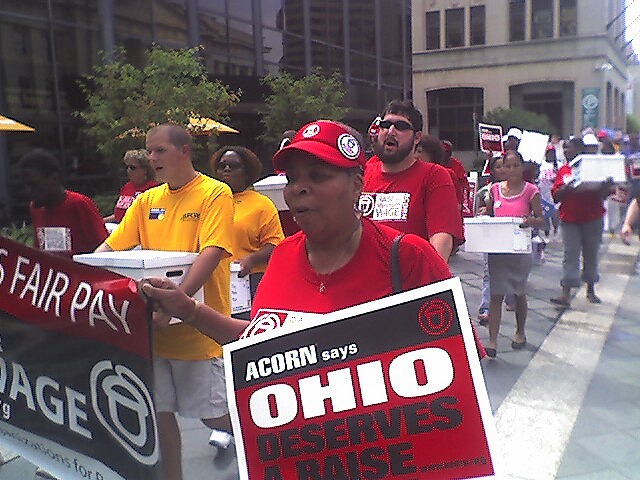
President Obama surprised political observers with a strong push to increase the minimum wage in his State of the Union address last week. Obama called on Congress to increase the federal minimum wage to $9/hour by 2015, from its current level of $7.25. In his post-SOTU tour, he has made the issue a central tenet of his economic proposals. Obama’s push, however, isn’t about the particular merits of a mandated wage hike. Rather, its purpose is to provide an issue around which Democrats can organize for the 2014 midterms. Its a playbook they’ve used before.
In 2005-06, the minimum wage was a major political issue, both in Congress and the states. The economy was humming, unemployment was low and the federal minimum wage hadn’t been raised in 20 years. Labor unions successfully placed initiatives to increase the minimum wage on the ballot in 6 battleground states; AZ, CO, MT, MO, NV and OH. Unions spent millions supporting the initiative, while ACORN spearheaded the ground game, organizing around the issue and registering new voters.
Labor has always supported the minimum wage as a policy issue. In 2006, however, they realized it was an organizing issue that could be used to boost turnout among voters sympathetic to them.
At the time, John Podesta, President of the Center for American Progress, a key labor ally, described the issue to the Columbus Dispatch as both the “politics of the common good” and “a motivator for people to register to vote and get out to vote.”
ACORN registered more than 500k new voters in the initiative states. It claimed to have knocked on over 2 million doors in these states and engaged with 700k low-income and young voters. It held rallies, canvasses and phone banks in support of the issue.
That November, Democrats picked up 5 Senate seats to take control of the chamber. Three of these seats were in states with a wage initiative on the ballot. In the House, Democrats picked up 31 seats, with 4 of these pick-ups coming from wage initiative states. Even in states without an initiative, however, Democrats used the issue to frame an economic argument against the GOP.
The Democrats’ chief disadvantage going into 2014 is that the lower turnout of mid-term elections generally favors Republicans, whose voters are more reliable voters. To overcome this, the Democrats will need an issue to mobilize its voters. In 2006, growing opposition to the Iraq War and, to a large extent, the minimum wage issue gave them on organizing edge in key races.
The GOP House will not raise the minimum wage. Obama and the Democrats want to frame the 2014 elections around this issue, to animate less reliable voters with a reason to vote. It’s not clear, though, it will work as well as it did in 2006. A minimum wage hike is a tougher sell in a weak economy with chronic unemployment. It’s also more likely that complications with implementation of ObamaCare will dominate the oxygen in the midterms.
Still, Obama has made his opening play for the coming midterms. GOP needs to be prepared.

COMMENTS
Please let us know if you're having issues with commenting.